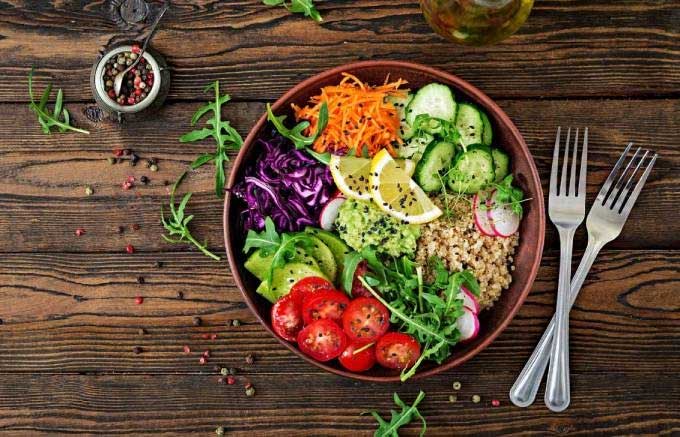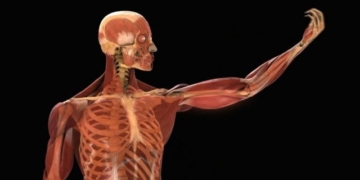For the elderly, young children, individuals with a naturally thin physique, and pregnant or breastfeeding women, a long-term vegan diet may be harmful to health.
Many people choose the vegan diet—a regimen that excludes meat, fish, and poultry from daily food consumption. They also avoid animal products such as milk, eggs, and cheese.
Maintaining a healthy vegetarian diet over the long term can benefit the improvement of heart metabolism, blood pressure, and body weight, while also reducing the risk of diabetes, hypertension, and cardiovascular diseases.
However, individuals who follow an unhealthy vegetarian diet—consuming high amounts of carbohydrates, candies, sugary drinks, ultra-processed vegetarian foods, trans fats, or only eating fruits and vegetables while eliminating all other food groups such as starches, dairy, and dairy products without using supplements—may be putting their health at risk.

A vegan diet is not suitable for the elderly, pregnant women, or young children. (Image: Healthline).
Zuo Xiaoxia, Director of the Nutrition Department at the PLA General Hospital in China, stated that excessive and unbalanced vegetarianism over the long term can lead to health issues such as insufficient high-quality protein intake, deficiencies in iron and zinc, lack of vitamins, increased glucocorticoid and steroid secretion in the body…
Experts recommend that overweight individuals, those with diabetes, hypertension, and cardiovascular issues may benefit from a vegetarian diet, provided it is balanced and includes a variety of food groups. However, the following six groups of people are not suited for long-term vegetarianism:
The Elderly
Due to the decline in physical functions in older adults, they face challenges such as reduced basal metabolism and muscle loss. A long-term vegetarian diet can lead to nutrient deficiencies, potentially causing issues such as anemia, osteoporosis, nerve damage, thyroid dysfunction, and decreased immune function.
Pregnant and Breastfeeding Women
Pregnant women have an increased need for protein, calcium, iron, and various vitamins. A vegetarian diet can adversely affect the health of both the mother and the fetus. Similarly, breastfeeding mothers need to provide nutrition for their infants, and long-term vegetarianism can impact the child’s development.
Infants and Young Children
Infants and adolescents are in a growth phase, and a long-term vegetarian diet can lead to issues such as stunted growth and short stature, while also affecting the development of the nervous and reproductive systems.
Individuals with Anemia and Women During Menstruation
Most cases of anemia are due to deficiencies in protein and iron, which are abundant in animal-based foods like red meat, liver, and blood tofu. A prolonged vegetarian diet can exacerbate anemia symptoms. Moreover, women following a blind vegetarian diet during menstruation may also experience nutritional deficiencies, insufficient energy, and low iron levels.
People Trying to Lose Weight
Individuals who are trying to lose weight may easily misunderstand that not eating meat is better for weight loss. In fact, increasing protein intake can enhance feelings of fullness, thereby reducing carbohydrate consumption, which is more beneficial for calorie control and boosting metabolism.
Thin and Weak Individuals
Those who are naturally thin may find that a long-term vegetarian diet leads to insufficient nutrition, weakened immunity, and increased susceptibility to illness. Meanwhile, individuals who are weak or suffering from conditions such as tumors, digestive issues, or chronic diseases must ensure a comprehensive protein intake to recover; a long-term vegetarian diet is not conducive to healing wounds and restoring bodily functions.




















































